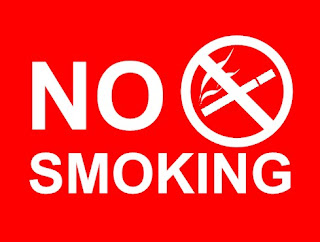
Reynolds American Inc., the nation's second-biggest tobacco company, said Tuesday its third-quarter profit fell nearly 4 per cent on charges related to legal cases and other costs.
But the maker of Camel, Pall Mall and Natural American Spirit brand cigarettes said its earnings excluding those items rose nearly 4 per cent as higher prices, productivity gains and selling more of its smokeless tobacco brands that include Grizzly and Kodiak offset cigarette volume declines.
The company remains focused on delivering sustainable growth, "even with a difficult economic and competitive environment," CEO Daniel M. Delen said in a news release.
Reynolds American, based in Winston-Salem, N.C., said its net income fell to $367 million, or 63 cents per share, for the period ended Sept. 30, down from $381 million, or 65 cents per share, a year ago.
Earnings adjusted for the charges related to claims in lawsuits from smokers injured by their cigarette use and other costs were 70 cents per share. Analysts polled by FactSet expected 73 cents per share.
Revenue excluding excise taxes slipped about 2 per cent to $2.2 billion from $2.24 billion, but beat analyst estimates of $2.16 billion.
The company also raised its quarterly dividend by 5.7 per cent. Its shares were steady at $39.37 in premarket trading.
Reynolds American said it sold 6.8 per cent fewer cigarettes than last year's quarter. That compares with its estimate of a total industry decline of 6.4 per cent.
U.S. tobacco companies cautioned last quarter that third-quarter cigarette volume comparisons and profitability would be hurt because wholesalers stocked up more than usual in that period last year.
The company sold less than 1 per cent more of its Camel brand and volumes of Pall Mall grew about 2 per cent.
Camel's market share remained stable at 7.9 per cent of the U.S. market, while Pall Mall's market share grew 0.7 percentage points to 8.6 per cent.
The company has promoted Pall Mall as a longer-lasting and more affordable cigarette as smokers weather the weak economy and high unemployment, and has said half the people who try the brand continue using it.
Reynolds American and other tobacco companies are also focusing on cigarette alternatives such as snuff and chewing tobacco for future sales growth as tax hikes, smoking bans, health concerns and social stigma make the cigarette business tougher.
The company sold 7 per cent more of its smokeless tobacco brands and its U.S. market share of the segment grew 1.1 percentage points to 31.6 per cent.
It also tightened its full-year forecast for earnings between $2.63 and $2.68 per share, excluding charges related to legal cases, tax items and other costs.
Analysts expected earnings of $2.65 for the year.
Reynolds American on Tuesday also said its board of directors approved an increase in the quarterly dividend of 3 cents per share, or 5.7 per cent, to 56 cents a share. The new dividend will be paid Jan., 3 to shareholders of record on Dec. 9.







